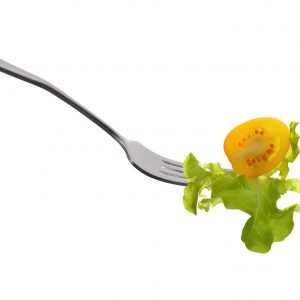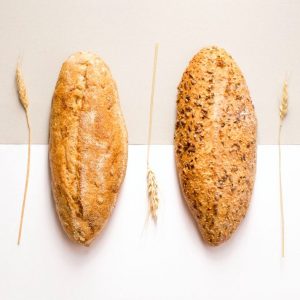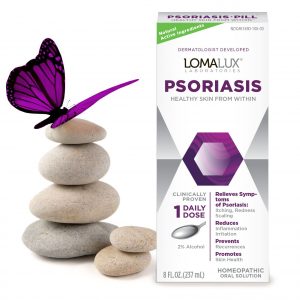Can Diet Improve My Psoriasis?
| 09Jun2020
A healthy diet and lifestyle are important for both your skin and overall health. Many psoriasis sufferers have reported good results in managing their symptoms by following an anti-inflammatory diet and/or a gluten-free diet.

How Inflammation Affects Psoriasis
Psoriasis is an inflammatory skin disorder. While inflammation is part of the body’s immune response to help heal, in the case of psoriasis, it can actually damage your skin. In healthy skin, cells grow deep in the skin and slowly rise to the surface, usually every 23 to 30 days. With psoriasis, this process speeds up and happens in just a few days, resulting in the formation of thick, red, inflamed skin patches with silvery scales that are characteristic of psoriasis.
A Healthy, Anti-Inflammatory Diet & or Gluten-Free Foods Are Key to Clear Skin
Do Anti-Inflammatory – Mediterranean Diets Help?
Research suggests that a nutrient-poor diet will increase your inflammation, while eating a healthy diet, including anti-inflammatory foods/supplements, can help improve your skin.
While there is no single diet plan, it is based upon the foods traditionally eaten in the countries that border the Mediterranean containing fresh, never processed foods that include colorful fruits, vegetables, healthy fats, proteins, and whole grains.
Anti-Inflammatory/Mediterranean Diet Basics
Fruit & Vegetables:

Try a selection of fruits and vegetables in a rainbow of colors, the more colorful, and the better. Some great choices are berries, citrus fruits, bell peppers, and bright leafy greens. Six to eight servings of vegetables and two to three servings of fruit daily are optimal. For those with a sweet tooth, choose fruit over a sugary dessert.
Healthy Fats & Lean Proteins:
Good fats are olive oil, avocadoes, olives, nuts, nut butter, flaxseed, and even dark chocolate.
Switch to lean proteins like chicken and fish. Try eating cold-water fish two to three times per week in place of red meats. Fish contain vital Omega 6 & Omega 3 fatty acids that help reduce inflammation in the body.
Whole Grains Instead of Refined Flours – No Refined Sugar
Carbs like bread and pasta are best eaten in moderation. Choose healthy whole grains like whole wheat, oats, quinoa, and brown rice instead.
Limit or eliminate sugary foods and drinks.
Do Gluten-Free Diets Help Relieve Inflammation?

According to the National Psoriasis Foundation, about 25% of psoriasis sufferers are also gluten-sensitive.
Research shows that a gluten-free diet may improve psoriasis symptoms for those that have gluten sensitivity.
Gluten is a protein commonly found in grains such as wheat, barley, and rye.
A healthy diet and lifestyle are important for both your skin and overall health. Many psoriasis sufferers have reported good results in managing their symptoms by following an anti-inflammatory diet and/or a gluten-free diet.
As gluten is the culprit that causes gastrointestinal symptoms in people with Celiac disease, there are now many gluten-free foods available in food stores with their own gluten-free section.
Foods & Supplements Recommended by our Dermatologist Founder to his own Patients:
Here’s a list that our dermatologist founder, Dr. Steven Smith recommends to his own psoriasis patients. Prior to any vitamin supplementation, especially children, pregnant women, nursing women, or people with an impaired kidney function, please check with your doctor.

Beneficial Foods/Supplements:
• Antioxidant Foods – blueberries, elderberries, cranberries, green leafy vegetables
• B-Group Vitamins – a balanced B complex, including B12 – daily
• Fresh Vegetables (carrot, beet, broccoli, pumpkin, spinach, cabbage
• Fermented Foods/Probiotics – kefir, probiotic yogurt, sauerkraut, pickled vegetables, apple vinegar
• Gluten-Free Foods
• Iron Rich Foods & Supplements – organic beef liver, dark chocolate, sardines, raisins
• Lean Protein Foods – cold-water fish, egg whites, low-fat dairy, beans, peas
• Lecithin-Rich Foods or Supplements – whole grains, soybeans, liver
• Nuts and Seeds – almonds, pistachios, brazil nuts, flaxseed, chia seed
• Oils – coconut, olive, sunflower, grape seed
• Oat & Rice
• Turmeric/Maximized Curcumin
• Vitamin D3 Supplements – year around is vital unless you spend a lot of time outdoors
Foods to Avoid:
• Alcohol, especially wine
• Cow’s Milk
• Citrus Fruits – Grapefruit, Oranges, Lemons & Limes
• Egg yolk
• Fried Foods
• Gluten-Rich Foods – pasta, bread
• Hydrogenated Oils – corn, cottonseed, soy oils
• Highly Processed Foods – bacon, lunch meat, frozen dinners, fast food
• Nightshade Vegetables & Fruits – white potato, tomatoes, all types of peppers
• Refined Sugars
• Red Meat High in Fat
If you aren’t ready to start a whole new way of eating, start with small steps. Eliminate one food at a time so you can monitor what helps your own symptoms. Use our symptom tracker so you can identify your own personal triggers: https://www.lomalux.com/articles-pdf/Checklist-Psoriasis.pdf
Relieve Psoriasis with Loma Lux Psoriasis

LOMA LUX® PSORIASIS
Dermatologist-developed and clinically proven, Loma Lux Psoriasis contains 5 all-natural skin-clearing minerals taken orally to clear skin from the inside out for healthy skin from within. It contains anti-inflammatory and other minerals to relieve psoriasis symptoms and helps promote skin health.
Learn more at https://www.lomalux.com/shop/order-lomalux-psoriasis/
